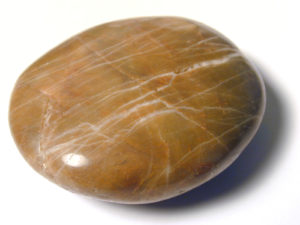Apply This Basic Investment Principle To Start Improving Everyday Life

This is true for diets, money management and also business success.
So what if I told you the sustaining part doesn’t have to be difficult?
Also the changes don’t have to be big changes to have a big effect, in fact they shouldn’t be.
I already wrote something about this in an earlier article:
So you can read that article about making small changes, some of the recent articles I’ve written about why you should be investing (and I’m going to write another one very shortly about how and where to invest) and any of these articles about how to form (good) habits:
- Habits (aka How To Learn ANYTHING) – (1 of 2)
- Habits: How To Learn ANYTHING (by Understanding How We Form Habits – Pt 2 of 2)
- Habits: How To Achieve Incredible Things
This article brings all of that together.
Forming habits is about analysis and about repetition. You need to put in the work. This often means making small adjustments to your existing habits over a long period of time. Days, weeks, months, or even years. The key here is that you have to commit yourself to something for a long time if you really want to change your behaviour.
It is this regular, sustained change, even if very small, which is very key. As I said in the recent article about investment, it is not how much you invest that I am looking for it is forming a habit to invest.
I’d rather you invested a tiny amount regularly than a huge amount once.
Why?
The Key To Sustained Change: Time In The Market
This is how good investment works – time in the market is one of the keys to investing and building wealth. Look at how dollar cost averaging works, avoiding risky exposures, instead smoothing out your market exposure and enabling you to take a safer but still profitable long term view of the market.
Time invested is key – and that’s because of compound interest. You make some profits (interest) on your investments, and those profits make more profits, and so on (compound interest).
So why not apply that principle to other areas of of your life?
The power of compounding can be applied to many more things than investing money. It can be applied to anything: a bit more exercise every day, eating a little more healthily, reading more, spending more time with family or friends, getting more sleep, tidying the shed, working out, meditating, going for more walks… you get the idea.
Incremental Changes, Exponential Growth
Practising small habits or skills every day and building on them is akin to your investment portfolio compounding. Incremental changes lead to exponential growth.
Just like making regular top-ups to your invested money, (non-investment) compounding is like making ‘daily deposits’ into anything else you choose to use this principle for – your projects, your goals, your relationships … and watching them build over time.
Give it a try, if you are going to invest a little extra in any area of your life, make sure you do so in a regular and sustained way and watch the compounding effect do it’s magic!
Footnote: The ‘Give Up One Thing’ Challenge
Before writing the ‘Power of Small Changes‘ article I mentioned at the beginning of this one, I issued a challenge to any interested readers, inviting them to make a small change by giving up one thing. The point of that article was to practically demonstrate before writing about small changes how deciding to make a small change can often be a catalyst for something bigger (as I know following that experiment it was for some of my readers at the time). The reason I’m adding this footnote here is in case you are reading this but can’t think of where to apply this principle you could also start with the ‘Give Up One Thing’ challenge and take it from there. Hop over and read that article and you can also see in the comments some of the things that the people who got involved decided top give up. Maybe it will give you a few ideas: Challenge: Give Up One Thing

Comments
Apply This Basic Investment Principle To Start Improving Everyday Life — No Comments
HTML tags allowed in your comment: <a href="" title=""> <abbr title=""> <acronym title=""> <b> <blockquote cite=""> <cite> <code> <del datetime=""> <em> <i> <q cite=""> <s> <strike> <strong>